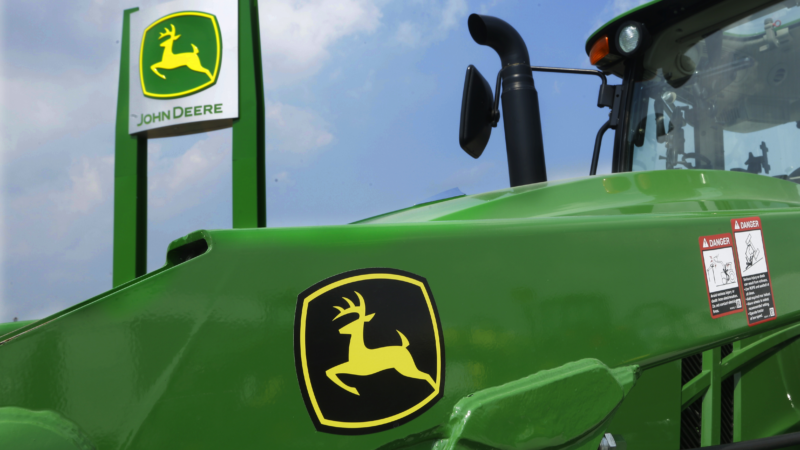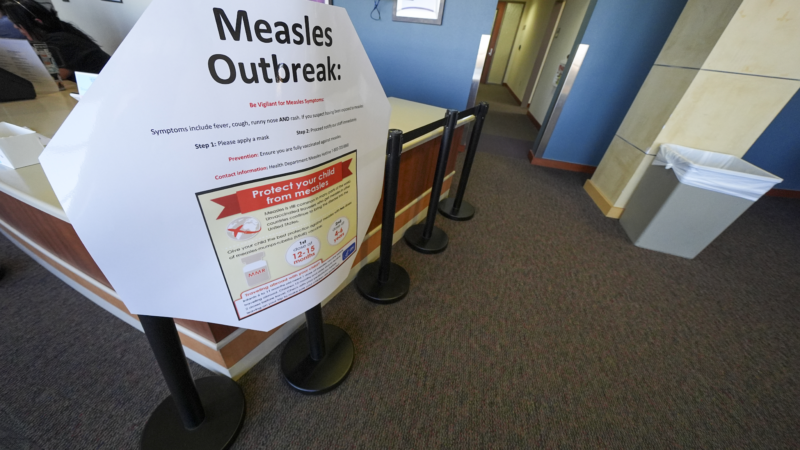John Deere faces U.S. lawsuit over farmers’ ability to repair tractors
Tractor maker John Deere faces a federal lawsuit that accuses the company of illegally forcing farmers to use only authorized dealers for critical repairs, boosting its multibillion-dollar profits.
The lawsuit — filed on Wednesday by the Federal Trade Commission along with Illinois and Minnesota — escalates a long-running battle over farmers’ right to repair their own agricultural equipment and parts.
As tractors and combines have gotten more computerized, farmers have complained that Deere has restricted access to its software and made it difficult, or nearly impossible, for owners to diagnose and fix problems themselves or with the help of independent mechanics. Instead, farmers have to use authorized dealers, who tend to charge more and may take longer.
The lawsuit accuses Deere of withholding access to its technology and best repair tools and of maintaining monopoly power over many repairs. Deere also reaps additional profits from selling parts, the complaint says, as authorized dealers tend to sell pricey Deere-branded parts for their repairs rather than generic alternatives.
“Unfair repair restrictions can mean farmers face unnecessary delays during tight planting and harvest windows,” FTC Chair Lina Khan wrote in a statement. “In rural communities, the restrictions can sometimes mean that farmers need to drive hours just to get their equipment fixed. For those who have long fixed their own equipment, these artificial restrictions can seem especially inefficient, with tractors needlessly sitting idle as farmers and independent mechanics are held back from using their skill and talent.”
It’s unclear how the case might proceed when Republicans take control of the FTC after Donald Trump becomes president on Monday. The agency’s two Republican commissioners had voted against suing Deere; one of them, Andrew Ferguson, is Trump’s pick to become the new FTC chair.
In their dissenting statement, commissioners Ferguson and Melissa Holyoak wrote that they welcomed the FTC “taking up the cause of the farmer” but made procedural arguments against the lawsuit. They said the timing, right before Trump’s inauguration, lends the case “the stench of partisan motivation.”
They also wrote the FTC did not gather enough evidence to have “any real confidence of our ultimate chance of success” in litigation — and said the agency was also in ongoing active negotiations for a settlement with Deere.
Deere representatives did not immediately respond to NPR’s request for comment on Wednesday. Earlier this week, the company had said it was expanding options for farmers to repair equipment themselves in a pilot program.
The FTC previously pursued similar right-to-repair cases against motorcycle giant Harley-Davidson and grill maker Weber.
UConn takes 12th NCAA women’s basketball title with dominant win over South Carolina
UConn is back on top of women's basketball, winning its 12th NCAA national championship by routing defending champion South Carolina 82-59 on Sunday.
Alex Ovechkin scores goal #895 to break Wayne Gretzky’s all-time NHL scoring record
The Washington Capitals star made history with a power play goal from the left faceoff circle — as Gretzky, who last set the record more than 25 years ago, looked on.
Severe storms and floods batter South and Midwest, as death toll rises to at least 18
Severe storms continued to pound parts of the South and Midwest, as a punishing and slow-moving storm system unleashed life-threatening flash floods and powerful tornadoes from Mississippi to Kentucky.
Israeli strikes on Gaza kill at least 32, mostly women and children
Israeli strikes on Gaza killed at least 32 people, including over a dozen women and children, local health officials said Sunday, as Israeli Prime Minister Netanyahu headed to meet President Trump.
Second child dies from measles-related causes in West Texas, where cases near 500
A second school-aged child in West Texas has died from a measles-related illness, a hospital spokesman confirmed Sunday, as the outbreak continues to swell.
Yemen Houthi rebels say latest US strikes killed 2, day after Trump posted bomb video
Suspected U.S. airstrikes killed at least two people in a stronghold of Yemen's Houthi rebels, the group said Sunday.








